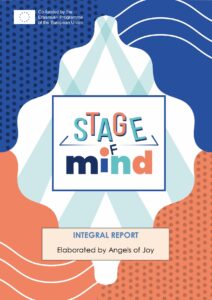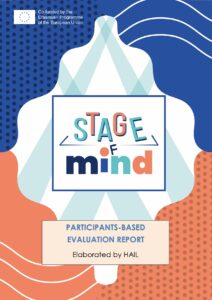The training program is divided into various sections, each corresponding to one arts discipline. It focuses on both, artistic production objectives and development of afore-mentioned transversal skills. The specific units will be:
1. Introduction
2. Original playwriting
3. Script comprehension and memorizing
4. Acting fundamentals (character building, objectives, tactics)
5. Voice and diction
6. Exploring sensory perceptions through movement
7. Dance as a narrative tool.
8. Music / Performance
9. Stage set design and production
10. Costume design for performance
The training materials are available in three languages: English, Greek and Spanish.
In addition, pedagogical tests were conducted in Spain, Greece and Ireland to evaluate the developed training programme. The entire process was closely monitored, gathering feedback from participants, trainers and mental health professionals involved in the activities. Feedback was collected periodically using dedicated questionnaires, forms, interviews and focus groups. The collected data was then analysed by project partners, resulting in the development of two comprehensive reports:
-A participant-based evaluation report, primarily focusing on the feedback provided by the participants.
-An integral report, primarily focusing on the feedback from trainers and mental health professionals.
These reports played a crucial role in upgrading the training program, ensuring that it incorporates the valuable insights gained from the feedback received.


